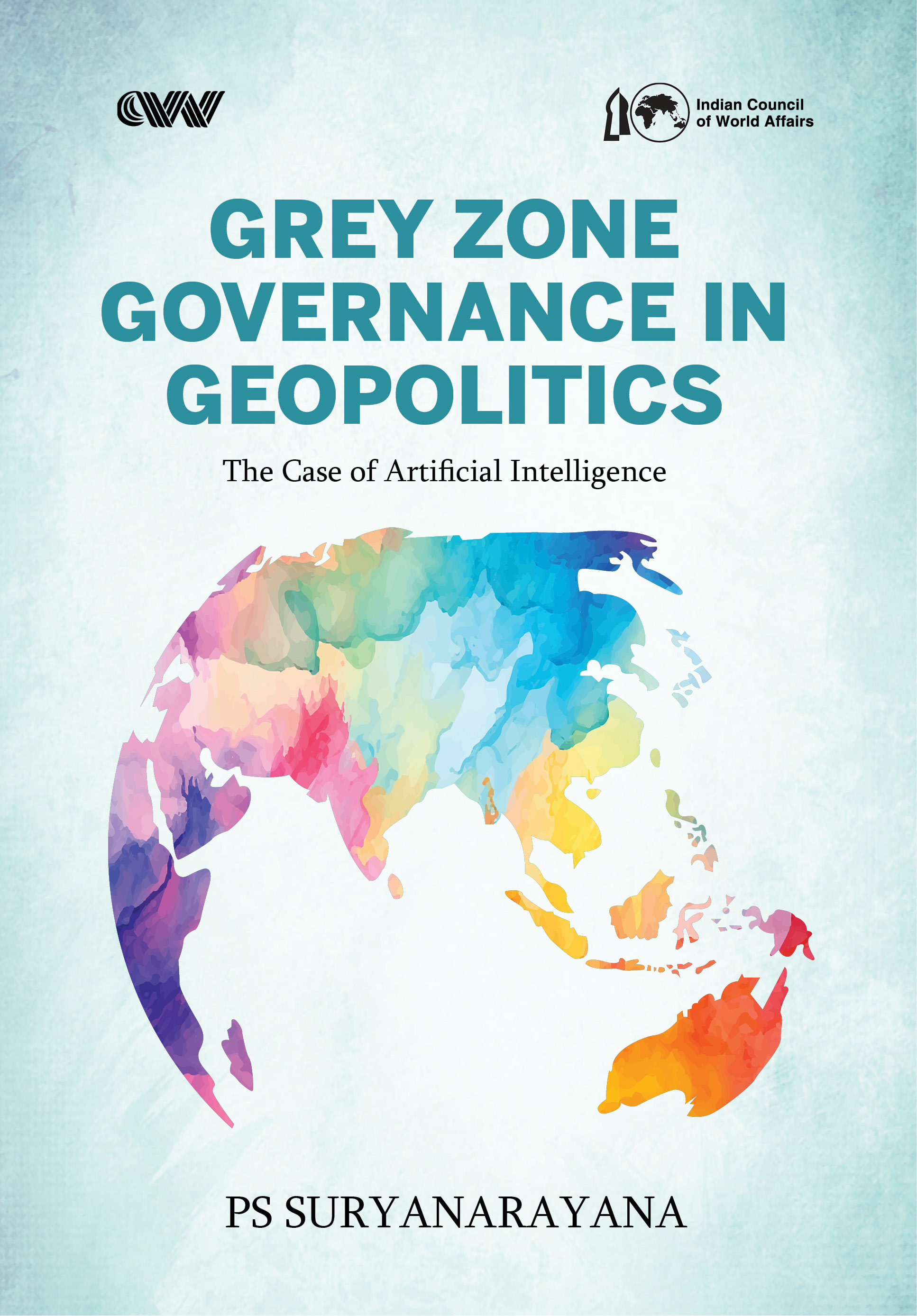Subjects
Recent View(s)
- Essays on India’s Political Economy
- Images Of Post-Soviet Kazakhstan: A Cosmopolitan Space with Borderland Anxieties
- Military Strategy, Joint Operations, and Airpower
- India, China and the Strategic Himalayas
- Grey Zone Governance in Geopolitics: The Case of Artificial Intelligence
- The Diplomatic Dimensions of Military History
Grey Zone Governance in Geopolitics: The Case of Artificial Intelligence
PS Suryanarayana
Artificial Intelligence (AI), increasingly the hyper-tech flavour of the 21st century, holds the promise of humanity’s new destiny if harnessed responsibly and governed globally. ‘Doomsday’ concern, however, is that AI could spawn and power weapons of mass destruction (WMD), worse than the most devastating nuclear and other WMD. Robust enforceable standards for global governance of AI are lacking, characterising this technology as a ‘grey zone’ in the realm of geopolitics.
The design, development, deployment, and use of AI have become the prerogatives of states and many non-state actors. Major countries are competitively perfecting this know-how and conceptualising norms for its use as a national or even borderless asset. At different geopolitical levels – the G20, Global Partnership on Artificial Intelligence, the Quad etc. – efforts are ongoing to regulate AI.
The United Nations seeks to maximise AI’s benefits and mitigate its latent risks across the world. The UN General Assembly has unanimously adopted two civil-AI resolutions, besides endorsing an intensely debated AI-arms resolution. A fair reform of the UN Security Council is necessary to regulate AI’s military applications.
The book presents the view that the UN could take the initiative to reform the UNSC on the basis of an advisory roadmap from a non-partisan AI model/system. Otherwise, the potential emergence of an ‘AI superpower’ group will be globally divisive.
This monograph is published under the auspices of the Indian Council of World Affairs and is timed for the UN Summit of the Future in September 2024 and beyond.


 Political Science
Political Science
